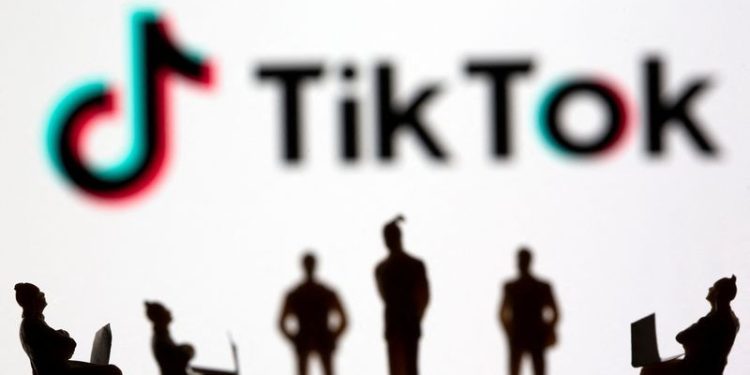By David Shepardson
WASHINGTON (Reuters) – Lawyers for TikTok and parent company ByteDance will square off with the Justice Department in a Washington courtroom on Monday over the fate of a law that could ban the short video app used by 170 million Americans as soon as Jan. 19.
A three-judge panel of the U.S. Court of Appeals for the District of Columbia will hold oral arguments on a legal challenge filed by TikTok and Chinese-parent company ByteDance that seeks an injunction barring the law from taking effect.
TikTok and ByteDance argue the law is unconstitutional and violates Americans’ free speech rights, calling it “a radical departure from this country’s tradition of championing an open Internet.”
Circuit Judges Sri Srinivasan, Neomi Rao and Douglas Ginsburg will consider the legal challenges brought by TikTok and users against the law that gives ByteDance until Jan. 19 to sell or divest TikTok’s U.S. assets or face a ban.
Driven by worries among U.S. lawmakers that China could access data on Americans or spy on them with the app, the U.S. Congress passed the law overwhelmingly in April just weeks after it was introduced.
Biden could extend the Jan. 19 deadline by three months if he certifies ByteDance is making significant progress toward a sale.
The hearing could put TikTok’s fate in the middle of the final weeks of the presidential campaign.
Both Republican presidential candidate Donald Trump and Vice President Kamala Harris are active on TikTok seeking to court younger voters.
The Justice Department says TikTok under Chinese ownership poses a serious national security threat because of its access to vast personal data of Americans, asserting China can covertly manipulate information that Americans consume via TikTok.
“The serious national-security threat posed by TikTok is real,” the department said.
ByteDance says divestiture is “not possible technologically, commercially, or legally” and without a court ruling will lead to an unprecedented ban.
TikTok and the Justice Department have asked for a ruling by Dec. 6, which could allow the U.S. Supreme Court to consider an appeal before any ban takes effect.
The White House says it wants to see Chinese-based ownership ended on national security grounds, but not a ban on TikTok. Trump, who unsuccessfully tried to ban TikTok in 2020, said recently if elected, he would not allow TikTok to be banned.





